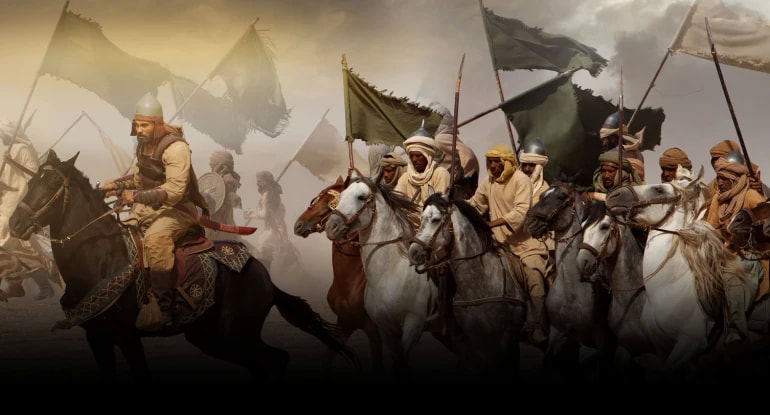 This is part of original piece written on July 6, 2019 - https://www.quora.com/Can-Muslims-prove-that-prophets-other-than-Muhammad-advocated-traditional-jihad Jihad means "struggle" and has a wider meaning in Islam. In Islam Jihad is divided in to 2 types: Jihad Al Akbar (Greater Struggle) and Jihad Al Asghar (Lesser Struggle). Jihad as in fighting actually belongs to the 2nd category of struggle i.e. Jihad Al Asghar because despite the fact that fighting an enemy is not something easy yet struggle against one's evil commanding soul called Nafs (lower self in humans) is considered greater form of struggle. You can read more on this topic here: The Quran on Jihad as Struggle vs Jihad as Fighting Nevertheless Jihad (struggle) as in fighting is a very important aspect of Islam, it will always remain an important duty of the Ummah (Muslim Community) and this can be easily understood by comparing the other religions with its universal teachings. Unlike Islam the propagation of message of previous religions was limited to their own community and not universal. Islam is not for a particular community, it is sent for the entire human race and there is no restriction in its mission of propagation. Prophet Muhammad ﷺ was sent for entire humankind unlike Prophets of previous nations who were only sent to their own communities. The scope of Allah’s message expanded and encompassed the entire humankind with the arrival of His Final Messenger. Since that is the difference in Islam therefore Jihad as in fighting became part of the religion for the sake of defending its mission. Its quite evident that no prophet ever came or his followers ever lived but faced hostility, persecution and death which cause their message to be forgotten or changed but Allah ﷻ sent a successor prophet or messenger to revive its teachings. Since Islam has a universal approach and there will not be any Prophets after Muhammad ﷺ this faith has been specifically given permission to conduct Jihad as in fighting to protect itself in the face of aggression. A typical example that can assist in understanding this better is the case of Bani Israel (children of Israel), whose history informs us that after their exodus from Egypt, they lived in the the Sinai Desert for 40 years without a homeland. Then Allah ﷻ decided for them to conquer a nearby land under Prophet Joshua (alaihi salaam) which was the land of Canaan. This land was given by Allah ﷻ to them for conquest so they can exit the desert area which they inhabited for half a century. However after this conquest all wars was to be ceased, no further conquest were allowed because the purpose of war was only establishment of a secure land for settlement and safe environment for practicing their faith and nothing more. After resettlement, the Israelis were then ruled for three to four hundred years by multiple religious leaders called the judges or kohens whose main concern was guiding religious services and practices of the Israelis, their concern was not political power. The twelve tribes of Israel lived under loose confederation, and no political power was necessary until they began facing continuous attacks for many years by neighboring nations such as philistines, Canaan, Moabs, Edomites etc. This led towards the formation of a Kingdom of Israel, first political power establishment of their history. It was not until Prophet Samuel (alaihi salaam) that Israelis requested him to establish a king over them to protect against attacks of neighboring nations. Allah ﷻ gave them a king by the name of Saul and this became the beginning of the establishment of first political power among Israelis and eventually leading towards establishment of Kingdoms of Israel and Judah. This is also why Prophet Moses (alaihi salaam) was a preacher prophet and not a political leader and neither were those who succeeded him like Prophet Aaron (alaihi salaam) and Prophet Joshua (alaihi salaam) and their successors. It was not until it became a necessity to protect against aggressive neighbors is why unity under one authority and establishment of political power became necessary. A major reason why political power was not a major concern for Allah ﷻ in the case of nations prior to Islam because the previous nations had a succession of Prophets and were never left without guidance. After arrival of the final Messenger ﷺ and revelation of the Quran two things changed in human religious history:
References: https://sunnah.com/bukhari/60/122
0 Comments
Leave a Reply. |
AuthorZaid Shah Archives
June 2020
Categories |
Proudly powered by Weebly
 RSS Feed
RSS Feed